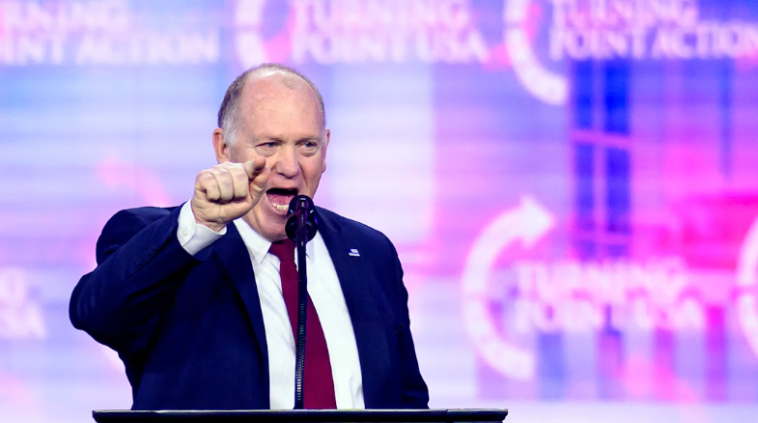Tom Homan, newly appointed as Border Czar under President-elect Donald Trump, has pledged to aggressively enforce border security policies while addressing potential internal resistance from federal employees who may oppose the administration’s agenda. Homan’s comments highlight his no-nonsense approach to implementing Trump’s immigration reforms.
A Tough Stance on Resistance
In a recent interview, Homan signaled his readiness to confront challenges from within the federal government, specifically targeting holdovers from the Biden administration who might undermine the new border policies.
“The president of the United States has an agenda. If you don’t like it, find another job. If you won’t leave, we’ll make sure you do,” Homan stated firmly, underscoring his determination to align all federal agencies with the incoming administration’s priorities.
Experience and Mission
Homan, a veteran of immigration enforcement with decades of experience, served as acting director of Immigration and Customs Enforcement (ICE) during Trump’s first term. His appointment as Border Czar reflects the administration’s commitment to revitalizing stringent border security measures and reversing Biden-era policies perceived as lenient.
His focus includes increasing deportations, cracking down on sanctuary city policies, and ensuring resources like detention centers are fully operational. Homan also plans to push for enhanced border infrastructure and the redeployment of military resources to aid immigration control.
Addressing Policy Challenges
Homan acknowledged the difficulties of reimplementing Trump-era policies after four years of policy reversals under the Biden administration. However, he emphasized that clear directives and accountability would ensure the success of the new border strategy.
“We will enforce the law as it’s written and make sure every department is working toward the same goal: securing the border and protecting American communities,” he said.
Future Plans and Funding Needs
Homan has already indicated that substantial resources will be necessary to accomplish the administration’s ambitious immigration goals. Estimates for detention facilities, staffing, and operational costs could surpass $86 billion. Despite the steep price tag, Homan maintains that the investment is critical for safeguarding national security.
Public and Political Implications
Critics argue that Homan’s approach may alienate some within the federal workforce and could face legal challenges. Supporters, however, praise his decisive stance, viewing it as a necessary corrective to perceived failings of the Biden administration’s border policies.
As Homan prepares to take on his new role, the stage is set for a robust reimplementation of Trump’s immigration agenda. With a focus on efficiency and accountability, Homan’s leadership will play a pivotal role in shaping the administration’s approach to border security and immigration enforcement.


